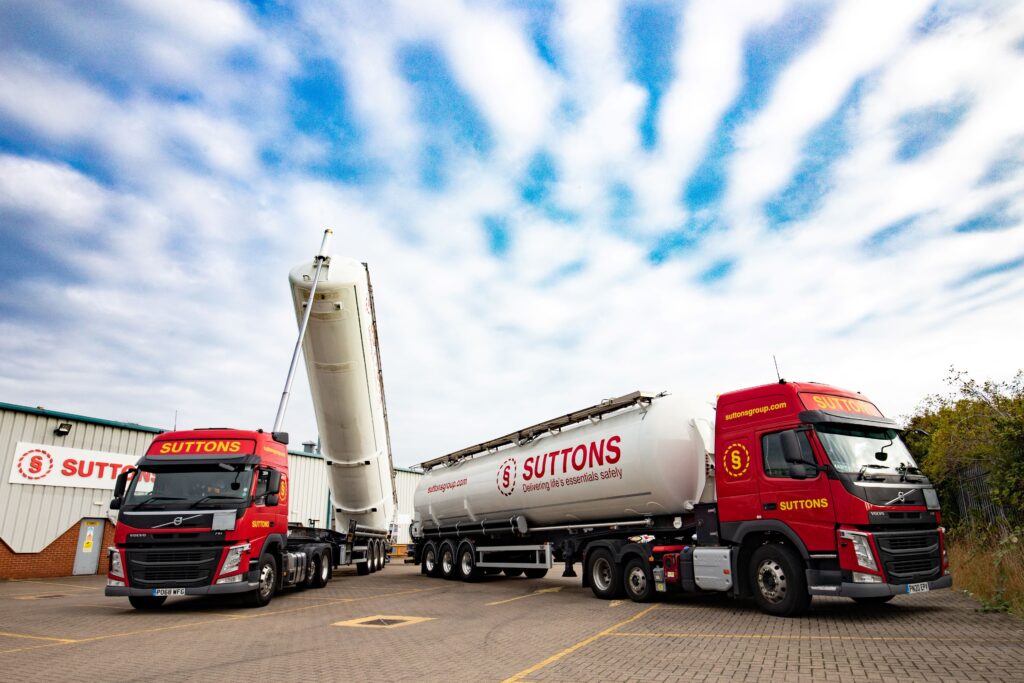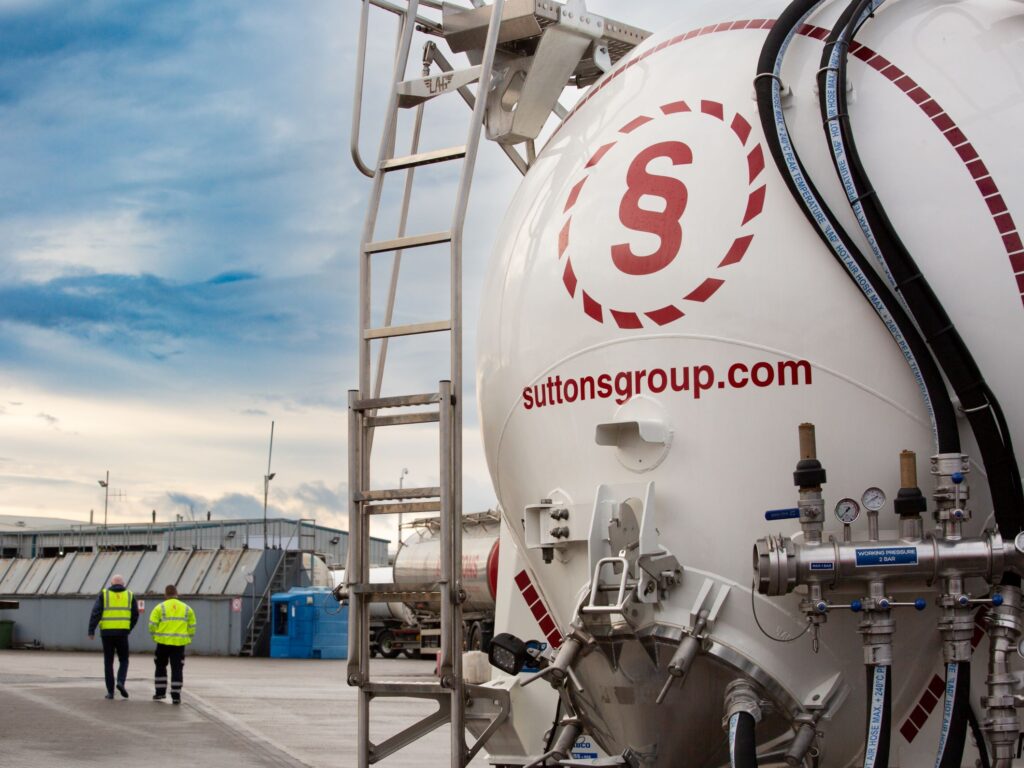The transportation of plastic granules is vital to not only the UK economy, but the world economy.
Most modern technology will involve some form of plastic material, therefore there are millions of tonnes of plastic granules that need to be transported each year.
Huge industries such as automotive, aerospace, food packaging and many many more will rely on such material which is why it’s important that they get to their end destination as safely and efficiently as possible.
In this post we’ll take a look at what transporting plastic granules actually entails and how we can assist you.
Methods of Transporting Plastic Pellets
Plastic pellets are used in various manufacturing processes and they are transported in a variety of ways depending on the quantity, distance, and specific requirements of the shipment.
Here are some common methods for transporting plastic pellets.
Road Tanker Logistics
For extremely large quantities of plastic pellets, bulk tankers or silo trucks are used. Tankers such as these are designed to transport dry bulk materials and are often used for long-distance transportation.
At Suttons, we have an entire state-of-the-art fleet that is capable of transporting plastic pellets in bulk all over the UK.
Our fleet is made up of silo tanks and tipping tanks which are capable of loading and discharging an array of powders and minerals.

Rail Transportation
For longer distances and larger quantities, plastic pellets may be transported by rail using hopper cars designed for bulk materials.
Air Transportation
In cases where speed is crucial, plastic pellets can be transported by air using cargo planes, typically in smaller quantities and for high-priority deliveries.
How are plastic pellets transported using bulk tankers?

Step 1: Loading the Pellets
The process begins at the plastic pellet manufacturer’s facility, where the pellets are loaded into the bulk tanker from a silo.
Loading is typically done through the top of the tanker using pneumatic conveying systems or gravity feed.
Step 2: Sealing the Tanker
Once the pellets are loaded, the tanker is sealed to ensure an airtight and secure environment for the pellets during transit.
Proper sealing is crucial to prevent moisture and contamination.
Step 3: Transportation
Loaded bulk tankers are then transported by road to their destination. Our tankers are specially designed to handle dry bulk materials like plastic pellets.
Step 4: Unloading the Pellets
At the destination, the bulk tanker is positioned for unloading. Unloading methods may vary, but the most common approach involves the use of pneumatic conveying systems.
Air compressors or blowers are used to create a flow of air that fluidises the plastic pellets, allowing them to flow out of the tanker through an unloading pipe. The plastic pellets are directed to storage silos or hoppers at the receiving facility.
Step 5: Ensuring Quality and Safety
During unloading, it’s essential to monitor the quality of the pellets and ensure that they are free from contamination or damage that may have occurred during transportation.
Safety measures are implemented to avoid any potential hazards.
Step 6: Cleaning the Tanker
After unloading, the bulk tanker is thoroughly cleaned to remove any remaining plastic pellets and residue.
This cleaning process is essential to prevent contamination during subsequent shipments.
Step 7: Inspection and Maintenance
Regular inspection and maintenance of the bulk tanker are crucial to ensure its safety and reliability for future shipments.
This includes checking for any structural issues, leaks, or equipment malfunctions.
Step 8: Documentation
Detailed documentation is maintained throughout the transportation process, including records of loading, unloading, quality checks, risk assessments and safety procedures.
This documentation is essential for traceability and compliance with regulatory requirements.
Proper handling, maintenance, and adherence to safety and quality standards are critical in the transportation of plastic pellets using bulk tankers.
How do you recycle waste plastic into granules?
Here’s a general overview of the steps involved in recycling waste plastic into granules:
- Collection and Sorting – Plastic waste is collected from various sources such as households, businesses, or recycling centres.
- Cleaning – Contaminants are removed, such as labels, adhesives, dirt, and other impurities, from the plastic materials. This can be done through washing, shredding, and mechanical separation.
- Shredding – The cleaned plastic materials are then shredded into smaller pieces or flakes. This increases their surface area and makes them easier to process.
- Melting and Extrusion – The shredded plastic flakes are melted in an extruder, which is a machine that heats and compresses the plastic. Molten plastic is then forced through a die to form strands or spaghetti-like shapes.
- Pelletising – The strands of molten plastic are cut into small pellets or granules as they cool down. This process is called pelletising.
- Cooling and Solidification – The newly formed plastic pellets are cooled to solidify them. This can involve using air or water cooling systems.
- Quality Control – The plastic pellets may undergo quality control tests to ensure they meet specific standards for size, shape, and material properties.
- Packaging – The final plastic granules are packaged in bags, containers, or other suitable packaging for distribution to manufacturers who will use them to produce new plastic products.
It’s important to note that the recycling process can vary depending on the type of plastic being recycled and the specific recycling facility.
Recycling technologies and methods continue to evolve, with advancements in chemical recycling and other innovative approaches aimed at improving the efficiency and sustainability of plastic recycling.
How many types of plastic granules are there?
The plastic industry classifies plastic granules according to the type of plastic resin used. There are seven types of plastic resins:
- PETE (or PET) – Polyethylene Terephthalate
- HDPE – High-Density Polyethylene
- PVC – Polyvinyl Chloride
- LDPE – Low-Density Polyethylene
- PP – Polypropylene
- PS – Polystyrene
- Other.
Knowing these different types is essential for industries to utilise the right plastic granules to produce the necessary products with the desired physical and mechanical properties.
The Environmental Impact of Transporting Plastic Granules
The transportation of plastic granules has significant environmental implications that cannot be ignored.
Improper disposal of plastic waste from these granules can create havoc for the environment, posing a threat to wildlife and contaminating ecosystems.
Therefore, it is important that the impact of plastic granule transportation on the environment be addressed through sustainable transportation practices and waste management strategies.
That’s why we at Sutton Tankers have committed to doing our part by signing up to the Operation Clean Sweep initiative.
This is a voluntary free programme which is aimed at improving awareness, promoting best practices and providing guidance on plastic pellet loss prevention.
Companies such as ours face the possibility of losing plastic pellets when they are being transported. Now we have access to tools and support which can help make sure this is avoided.
Experts in Transporting Plastic Granules
It’s important that we work closely with our customers when it comes to transporting plastic pellets for them.
That way, we can come up with bespoke solutions that will give you the best possible outcome. We constantly invest in our fleet and latest technology so that our logistic processes are as efficient as possible.
Our fleet has the expertise to transport PVC, PET and recycled plastics. As well as this, we are specialised in transporting a variety of bulk powders and granules.
If you’re a company that has the requirement for transporting these plastics efficiently and safely, then please reach out to us today.
We can look at your individual needs as a business and offer a totally bespoke solution which suits you.